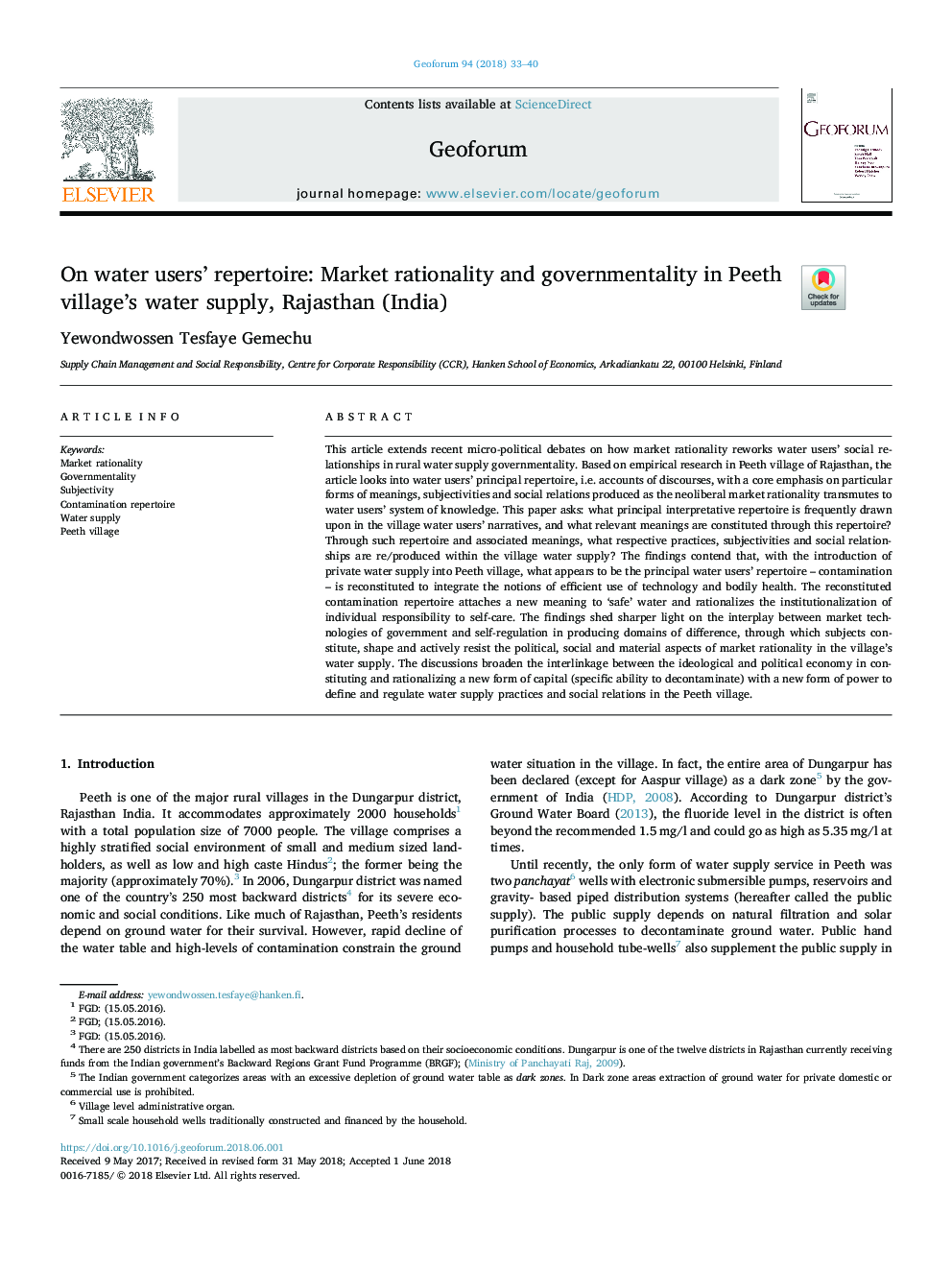| Article ID | Journal | Published Year | Pages | File Type |
|---|---|---|---|---|
| 7353369 | Geoforum | 2018 | 8 Pages |
Abstract
This article extends recent micro-political debates on how market rationality reworks water users' social relationships in rural water supply governmentality. Based on empirical research in Peeth village of Rajasthan, the article looks into water users' principal repertoire, i.e. accounts of discourses, with a core emphasis on particular forms of meanings, subjectivities and social relations produced as the neoliberal market rationality transmutes to water users' system of knowledge. This paper asks: what principal interpretative repertoire is frequently drawn upon in the village water users' narratives, and what relevant meanings are constituted through this repertoire? Through such repertoire and associated meanings, what respective practices, subjectivities and social relationships are re/produced within the village water supply? The findings contend that, with the introduction of private water supply into Peeth village, what appears to be the principal water users' repertoire - contamination - is reconstituted to integrate the notions of efficient use of technology and bodily health. The reconstituted contamination repertoire attaches a new meaning to 'safe' water and rationalizes the institutionalization of individual responsibility to self-care. The findings shed sharper light on the interplay between market technologies of government and self-regulation in producing domains of difference, through which subjects constitute, shape and actively resist the political, social and material aspects of market rationality in the village's water supply. The discussions broaden the interlinkage between the ideological and political economy in constituting and rationalizing a new form of capital (specific ability to decontaminate) with a new form of power to define and regulate water supply practices and social relations in the Peeth village.
Related Topics
Social Sciences and Humanities
Economics, Econometrics and Finance
Economics and Econometrics
Authors
Yewondwossen Tesfaye Gemechu,
